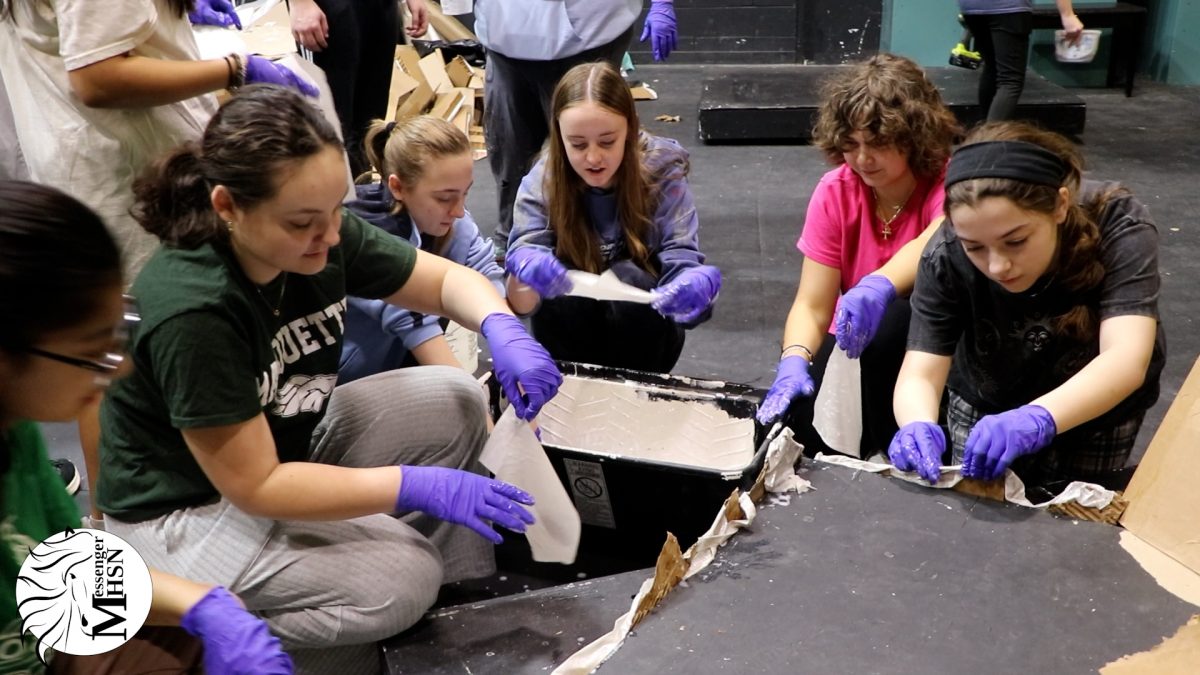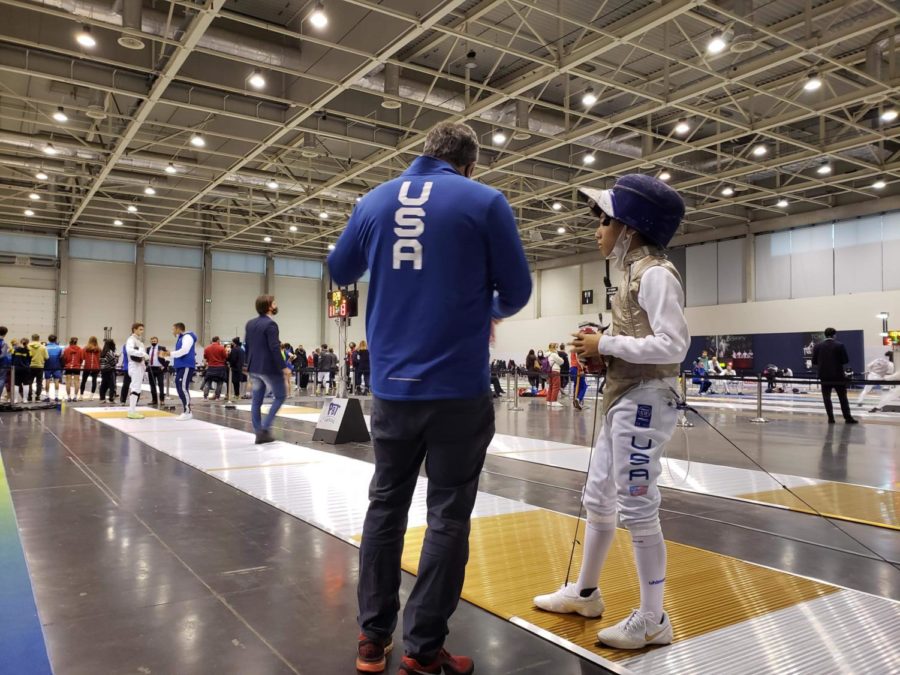En-garde. Prêts? Allez! And with that, the competitors are off, weapons in hand, ready to strike at the opportune moment. In fencing, the objective is to strike the opponent before they can strike you; sophomore Ajit Sivakumar and freshman Aidan Lee have mastered this routine, conquering opponents in tournaments throughout the United States.
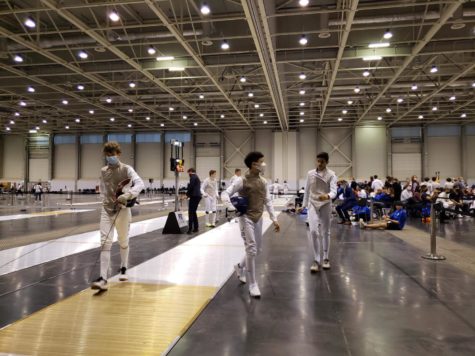
As nationally ranked fencers, both Lee and Sivakumar recently got the opportunity to take their talents overseas. Lee’s tournament in Budapest, Hungary on Nov. 13-14 and Sivakumar’s in Grenoble, France on Nov. 20-21 mark the first time either have traveled abroad for fencing. Both fencers compete in the cadet age group, ages 14 to 17.
“It’s my first international tournament. I’ve been fencing with people who are older than me for a while,” Lee, 14, said.
From Day One
Lee began fencing when he was eight years old, while Sivakumar took up the sport a bit more recently.
“I was initially inspired [to start fencing] after watching the Olympics in 2016. I didn’t know much about it either, because fencing was pretty small compared to a lot of other sports,” Sivakumar said.
As is with many major achievements, the opportunity to represent the country in an international tournament takes hard work, dedication, and maybe a little luck. In the rankings leading up to the tournaments, Lee was ranked 21st in the nation, while Sivakumar was 14th.
“First, they [ask] the top 20 people in the nation. Then, if someone doesn’t want to go, they ask the next person. I was 21st, so because someone didn’t want to go, I got to go,” Lee said.
Game Plan
The two have been preparing for a long time, and in the days leading up to the tournaments, neither has slowed down their preparations.
“I train after school from 7 to 9p.m pretty much every day except Tuesday and Thursday, with a lot of conditioning and physical training,” Lee said.
To properly prepare for a tournament, fencers have to account for many aspects of the sport and get in optimal condition.
“We do drills with bladework or footwork, or practice fencing each other. The individual lesson is where you can really work on technique and strategy. If I recently lost in a tournament, I would watch the tape and figure out what I did wrong,” Sivakumar said.
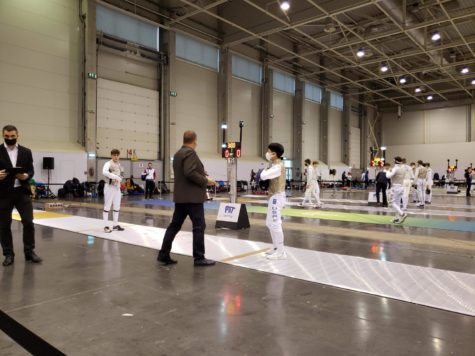
Both athletes train regularly with or without an upcoming tournament, but preparing mentally is specifically valuable for tournaments.
“Before a tournament, I practice and do drills for situations that I might be in. Like if the score was tied, what would I do to win? Or if I was losing by three points, what can I do to make sure I don’t lose more points myself?” Sivakumar said.
Going Abroad
Although Lee and Sivakumar have competed in fencing tournaments across the country, international tournaments are new territory for them.
“At first, I just thought ‘Oh, I did what I had to do to get there,’ but now it’s like ‘Wow, well I’m traveling internationally,’” Sivakumar said before the competition. “Generally, when I go to a tournament, I know what to expect, but I’m not sure what to think about this one.”
This story was originally published on tjTODAY on December 3, 2021.


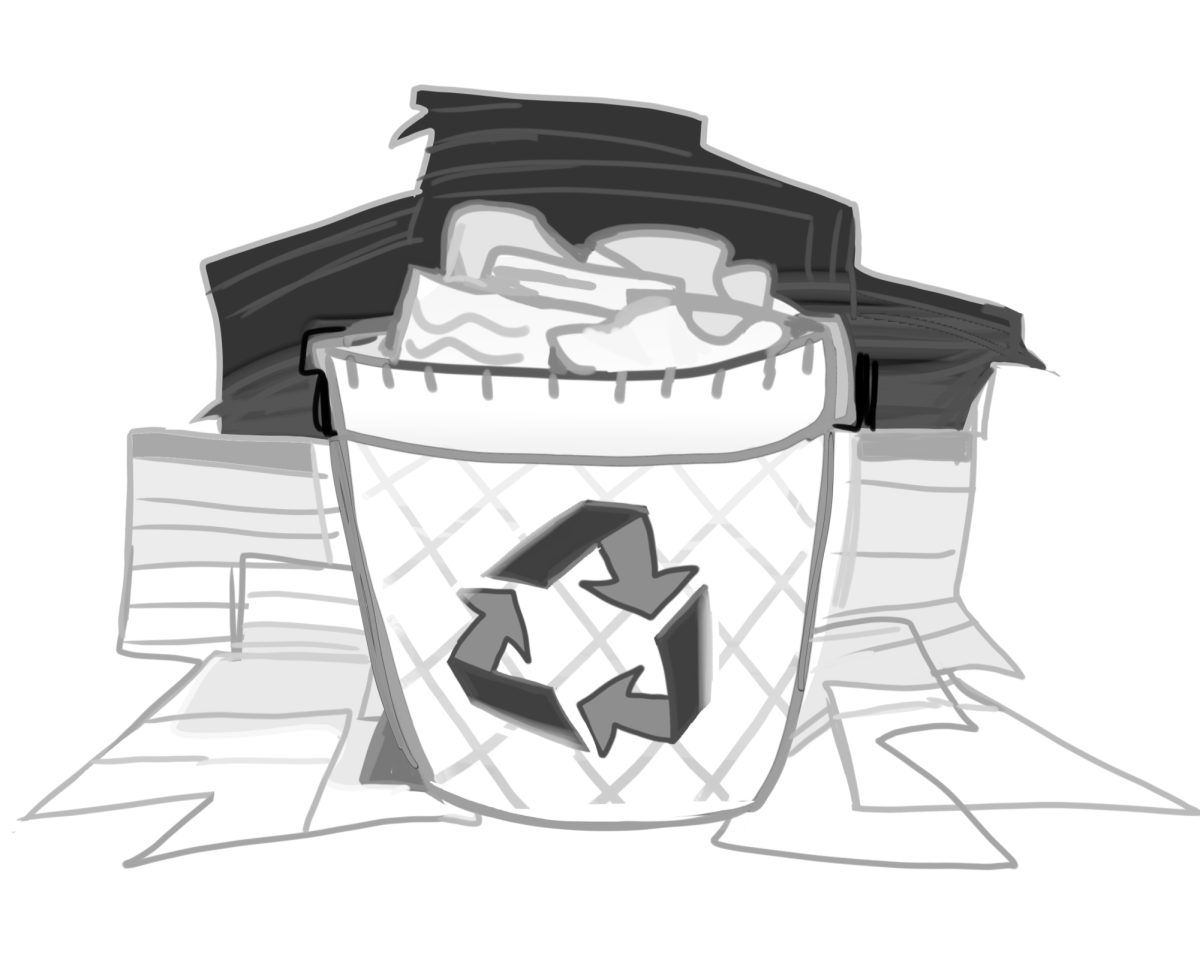



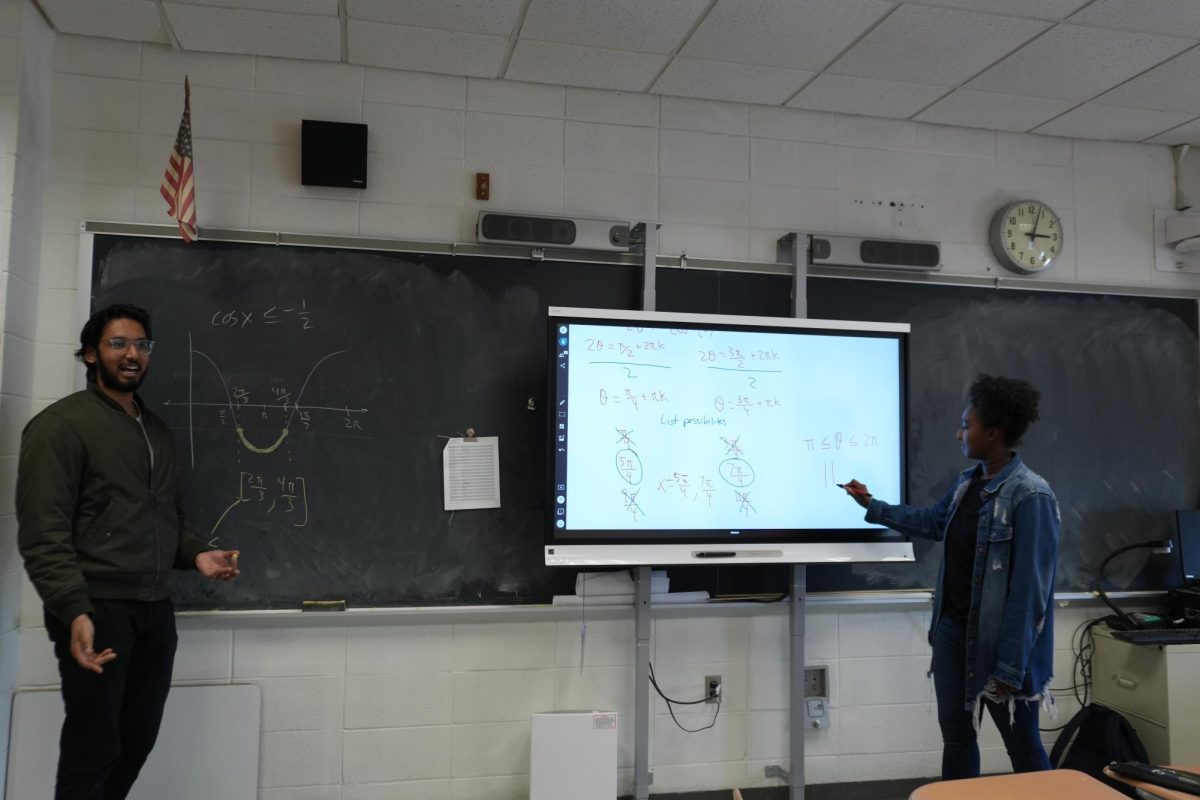


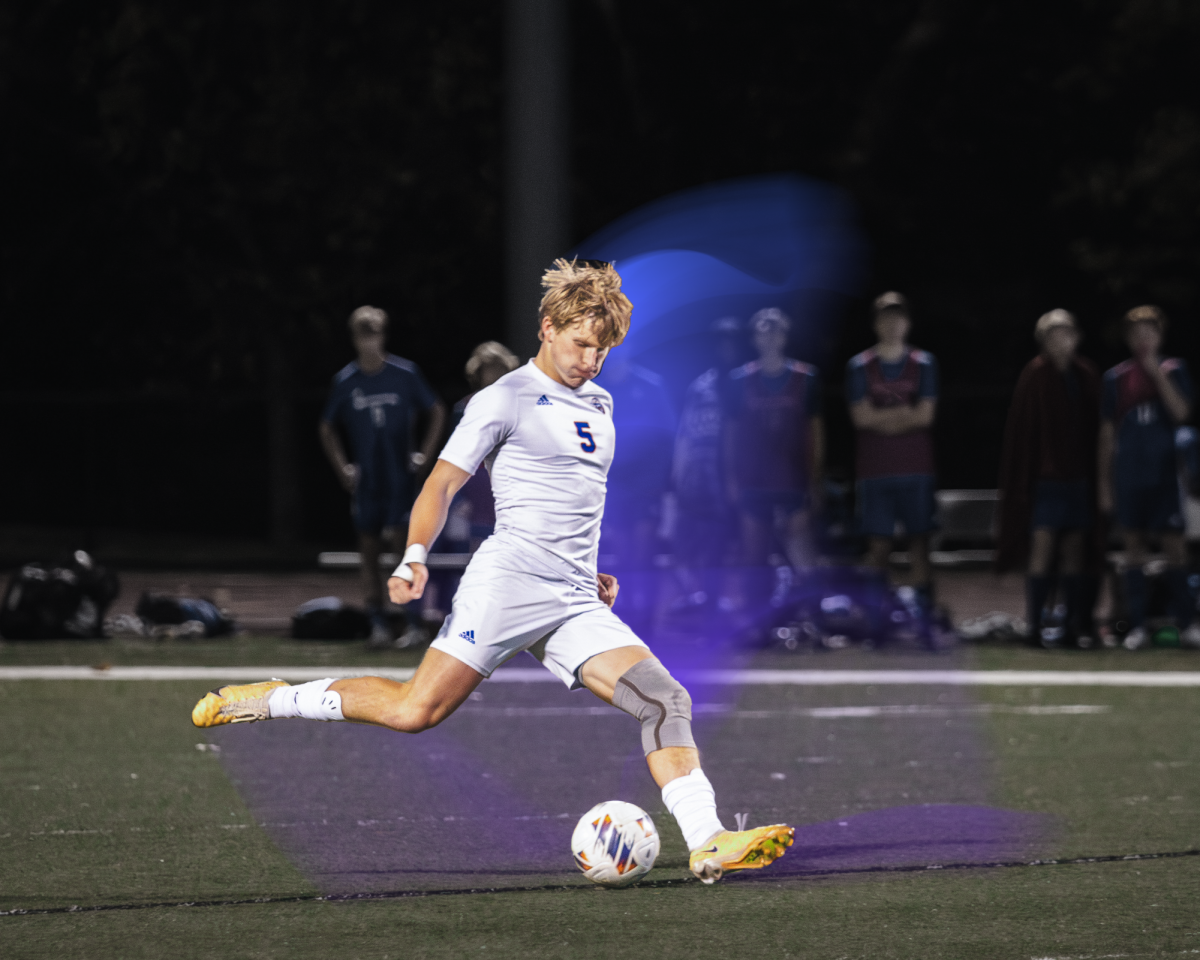





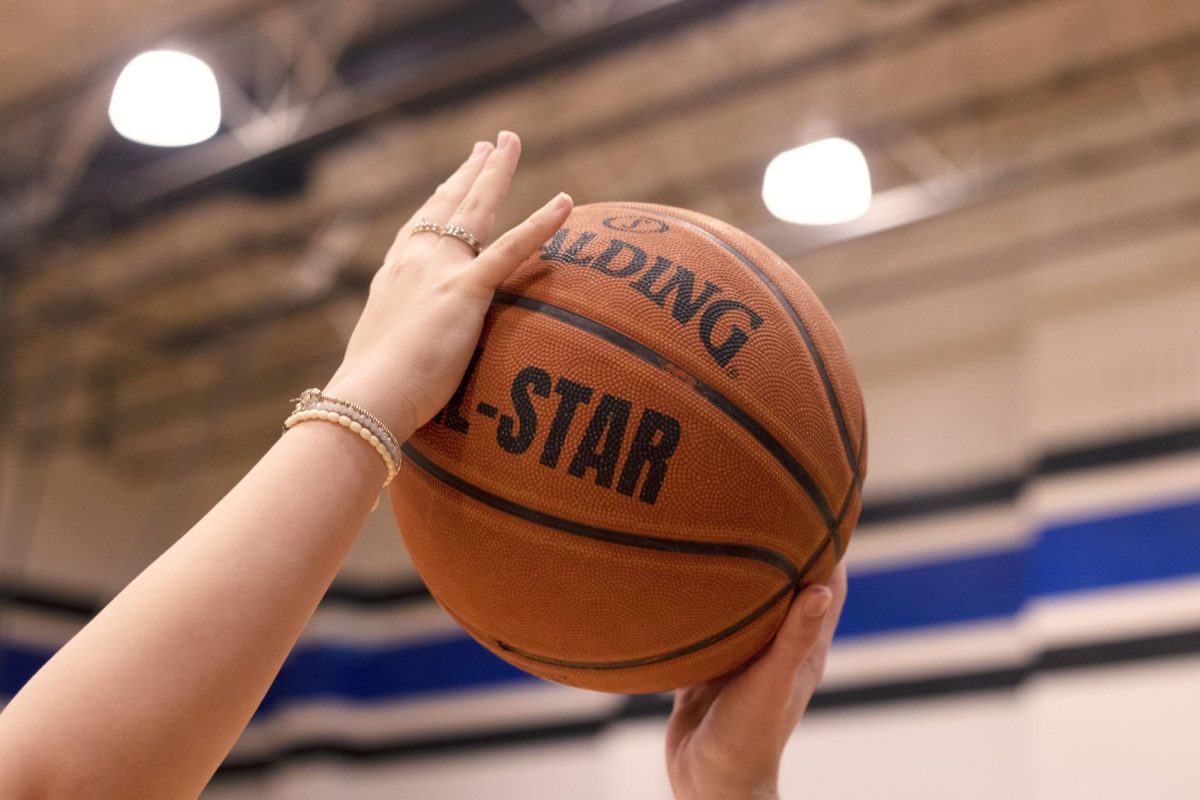












![IN THE SPOTLIGHT: Junior Zalie Mann performs “I Love to Cry at Weddings,” an ensemble piece from the fall musical Sweet Charity, to prospective students during the Fine Arts Showcase on Wednesday, Nov. 8. The showcase is a compilation of performances and demonstrations from each fine arts strand offered at McCallum. This show is put on so that prospective students can see if they are interested in joining an academy or major.
Sweet Charity originally ran the weekends of Sept. 28 and Oct. 8, but made a comeback for the Fine Arts Showcase.
“[Being at the front in the spotlight] is my favorite part of the whole dance, so I was super happy to be on stage performing and smiling at the audience,” Mann said.
Mann performed in both the musical theatre performance and dance excerpt “Ethereal,” a contemporary piece choreographed by the new dance director Terrance Carson, in the showcase. With also being a dance ambassador, Mann got to talk about what MAC dance is, her experience and answer any questions the aspiring arts majors and their parents may have.
Caption by Maya Tackett.](https://bestofsno.com/wp-content/uploads/2024/02/53321803427_47cd17fe70_o-1-1200x800.jpg)
![SPREADING THE JOY: Sophomore Chim Becker poses with sophomores Cozbi Sims and Lou Davidson while manning a table at the Hispanic Heritage treat day during lunch of Sept 28. Becker is a part of the students of color alliance, who put together the activity to raise money for their club.
“It [the stand] was really fun because McCallum has a lot of latino kids,” Becker said. “And I think it was nice that I could share the stuff that I usually just have at home with people who have never tried it before.”
Becker recognizes the importance of celebrating Hispanic heritage at Mac.
“I think its important to celebrate,” Becker said. “Because our culture is awesome and super cool, and everybody should be able to learn about other cultures of the world.”
Caption by JoJo Barnard.](https://bestofsno.com/wp-content/uploads/2024/01/53221601352_4127a81c41_o-1200x675.jpg)



